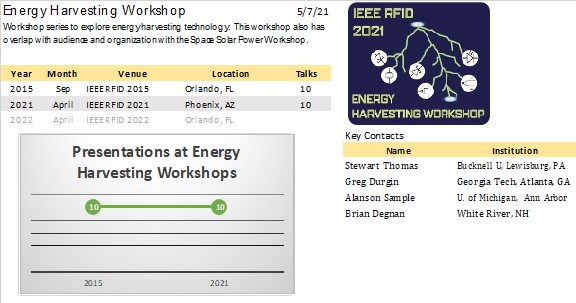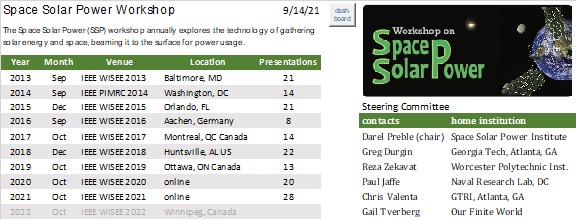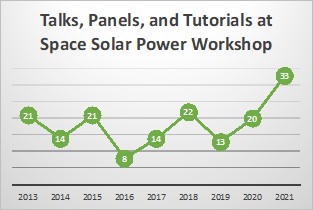The Technical Committee (TC) on Energy Harvesting Systems will be launched with two initial working groups associated: low-power electronic systems (LPES) and space solar power (SSP).
Working Group 1: Low-Power Electronic Systems (LPES) This area seeks to capture all of the low-energy RF harvesting and electronic design topics that originate with – but have many applications beyond the scope of – RFID. These WG-LPES areas of interest include, but are not limited to,
- Low-power electronics
- RF energy-harvesting techniques
- Low-power charge pumps
- Charge management systems
- Passive Wireless Sensors
- Hybrid sources involving combinations of RF, solar, thermal, vibration, others
- Ambient RF energy scavenging
- Applications involving energy-harvesting
- Battery charging and supercapacitors
- Energy-investment schemes for harvesting
- Multi-sine and power optimized waveforms
- Low-power sensing systems
Working Group 2: Space Solar Power (SSP) This area seeks to capture the myriad complicated subsystems that comprise space solar power systems. These WG-SSP areas of interest include, but are not limited to,
- SSP communication interference studies
- Wireless/microwave power transfer
- Technological and policy for promoting SSP
- Education at all levels
- Comparative energy economics
- Green energy alternatives
- Energy, space, environmental policy makers
- SSP channel modeling/wireless system design
- Array technology for power transmission
- Terrestrial power-beaming technology
- Antenna and solar integration
- Environmental impact/planetary sustainability
- Transmission modulation, multiple access, freq.
- Wireless power distribution (all forms)
- Orbital security and space debris
- System structural architecture
- Packaging and assembly in space
- Attitude determination and station keeping
- Energy collection concepts and designs
- High-powered microwave/mm-wave sources
- Space-hardening/in-space performance
- Thermal management
- SSP manufacturing
Vision
We propose the formation of the IEEE Council on RFID’s Technical Committee on Energy Harvesting Systems (TC-EHS) to promote activities and research in the field of energy harvesting systems, from the low-powered world of UHF RFIDs to the high-powered, futuristic green energy sources in space.
Mission
The mission of the TC-EHS is to promote and facilitate research and publication in the IEEE related to energy-harvesting systems, low-power electronics, space solar power systems, and related technologies. TC-EHS shall support organization of workshops/conferences, special sessions, special journal issues, learning materials, best practices, tutorials, sessions, webinars, and other educational resources related to the field of precise motion capture and wireless localization. TC-EHS shall be involved in international standardization efforts and be a source of professional knowledge on state-of-the-art best practices and trends in the field, with the objective of becoming a center for this growing area. Furthermore, our goal is to stimulate growth of this specific TC within the CRFID to engage more members interested in the activities and to benefit from IEEE membership.
History
The working groups have interesting and independent histories within CRFID, but have common travelers and interesting areas of cooperation.
The Low-Power Electronic Systems (LPES) working group has grown out of past workshops on energy-harvesting within IEEE RFID. Began in 2015 by Dr. Daniel Arnitz’s Energy Harvesting workshop at IEEE RFID, the effort was resurrected successfully with another workshop in 2021. After a false start at launching an IEEE Energy Harvesting Journal by IEEE CRFID in 2018, an alternative strategy of offering regular workshops related to this topic was considered as a constructive alternative for the community.

The Space Solar Power (SSP) working group has a long history and association with IEEE WiSEE, hosting its annual workshop at this venue. This workshop was founded by Darel Preble in 2013. There are ties to other IEEE technical committees with MTT-25 Wireless Power Transfer and Energy Conversion Committee within the IEEE Microwave Theory and Techniques Society.


The field of Energy-Harvesting Systems is quite vast, so it is anticipated that additional working groups may form after establishment.
